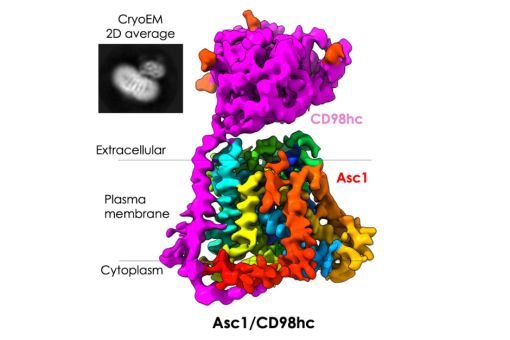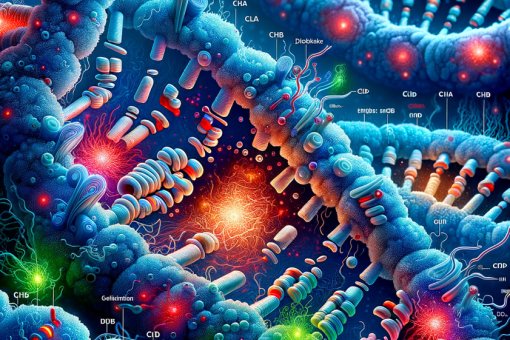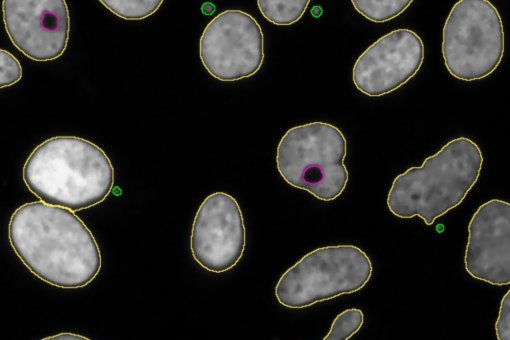Images
Participants

Contact

A study, published today in the journal Nature, marks a milestone in the understanding of chronic lymphocytic leukemia (CLL)
CLL is the most frequent leukemia with more than 12,000 new cases diagnosed in Europe every year
IRB Barcelona group leader Modesto Orozco participated in the study as he is involved with the International Cancer Genome Consortium (ICGC)
A study, published today in the journal Nature, marks a milestone in the understanding of chronic lymphocytic leukemia, the most common leukemia in adults, as the genomes of normal and tumor cells for more than 500 patients have been sequenced providing novel mechanisms involved in the development of this tumor. Cancer originates due to the progressive accumulation of mutations in the genome of normal cells. This is why seven years ago the International Cancer Genome Consortium (ICGC) was established. The main aim of this consortium was to sequence the genome of tumor cells from at least 500 patients, and do it for each of the 50 most frequent types of cancer in the world. The Spanish-led consortium in charge of the chronic lymphocytic leukemia study has been the first team to accomplish this ambitious objective. In this work, led by Dr. Carlos Lopez-Otin, from the University of Oviedo and by Dr. Elias Campo, from Hospital Clinic, IDIBAPS and University of Barcelona, more than 60 researchers from different centers have collaborated to mine the three billion bases of each tumor genome in search of alterations responsible for the development of this disease. IRB Barcelona's group leader Modesto Orozco takes part in the Consortium thorugh the IRB Barcelona, CRG and BSC Computational Joint Programme.
Chronic lymphocytic leukemia is the most frequent leukemia in Western countries, with more than 12,000 new cases diagnosed in Europe every year. Knowing the genetic alterations present in a tumor is a fundamental step to understand cancer development and improve current treatments.
This study shows that each tumor accumulates more than three thousand mutations in its genome, but only a handful of them are relevant for tumor growth. “We have been able to define 60 different genes whose mutations cause tumor initiation and development” comments Dr. Lopez-Otin. “However, the most relevant finding of this study has been the identification of mutations in regions of the genome which do not code for proteins and whose functional relevance is still hardly known”. “These regions represent 98% of our genome, but their functions are poorly understood, so they are not routinely analyzed in patients” explains Dr. Xose S. Puente from the University of Oviedo, and first author of the study. “In this work, we have shown that one in every five tumors originates due to mutations in the so called dark regions of the genome, and knowing this information is essential, as they have a clear impact on the prognosis of the disease”.
The study also reveals the impact of several mutations in the clinical evolution of the patients. “This work provides a comprehensive catalogue of the most important genetic alterations involved in the development of this leukemia”, comments Dr. Elias Campo.
The Spanish Consortium for the Study of Chronic Lymphocytic Leukemia Genome
The Spanish Consortium for the Study of Chronic Lymphocytic Leukemia Genome (www.cllgenome.es) belongs to the International Cancer Genome Consortium (www.icgc.org), led by Tom Hudson from the Ontario Cancer Institute in Toronto. The results generated by this Consortium are providing the grounds for the upcoming use of Precision Medicine initiatives worldwide. Thus, the increasing use of tumor genomic analysis will allow a better classification of patients, as well as better treatment decisions based on the type of genetic alterations present in the tumor. In fact, novel generations of drugs for chronic lymphocytic leukemia are approved for patients with specific genomic alterations, and this situation will become more common as the mutations which determine the response to specific drugs are identified. The study published today confirms the utility of genome sequencing to uncover the genetic causes of cancer and to identify novel mechanisms implicated in its development, as well as to define new therapeutic approaches for its treatment.
More than 15 institutions collaborated on the Chronic Lymphocytic Leukemia Genome Project (www.cllgenome.es), including: Hospital Clinic from Barcelona, Instituto de Oncología Universidad de Oviedo, Institut d’Investigacions Biomèdiques August Pi i Sunyer, University of Barcelona, Barcelona Supercomputing Center, Deusto University, Centro Nacional de Análisis Genómico, Hospital Universitario de Salamanca, Hospital Universitario Central de Asturias, Hospital Clínico de Valencia, Institut Català d’Oncologia, Centro de Investigación del Cáncer de Salamanca, Columbia University, NY, USA, Radboud University, Nejmeigen, The Netherlands, Center for Research and Technology, Thesaloniki, Greece, Centre de Regulació Genómica de Barcelona, and Centro Nacional de Investigaciones Oncológicas.
The research was funded by the Spanish Ministerio de Economía y Competitividad through Instituto de Salud Carlos III.
Article reference:
Non-coding recurrent mutations in chronic lymphocytic leukaemia.
Puente XS, Bea S, Valdes-Mas R et al.
Nature, July, 2015. DOI: 10.1038/nature14666
About IRB Barcelona
The Institute for Research in Biomedicine (IRB Barcelona) pursues a society free of disease. To this end, it conducts multidisciplinary research of excellence to cure cancer and other diseases linked to ageing. It establishes technology transfer agreements with the pharmaceutical industry and major hospitals to bring research results closer to society, and organises a range of science outreach activities to engage the public in an open dialogue. IRB Barcelona is an international centre that hosts 400 researchers and more than 30 nationalities. Recognised as a Severo Ochoa Centre of Excellence since 2011, IRB Barcelona is a CERCA centre and member of the Barcelona Institute of Science and Technology (BIST).




